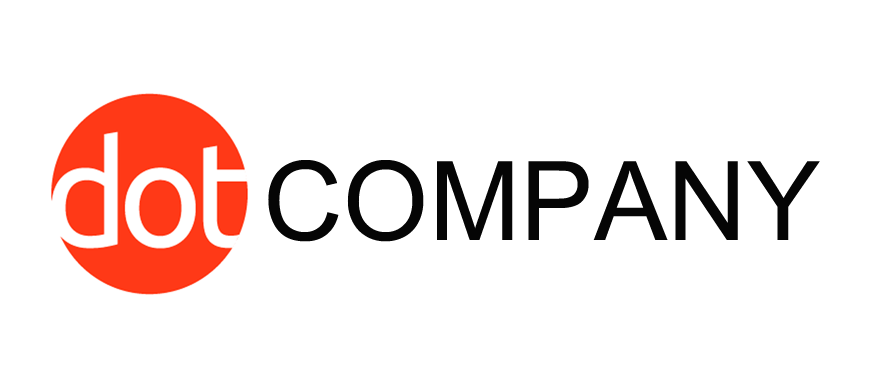Infrastructure as a Service (IaaS) in Cloud Computing
Infrastructure as a Service (IaaS) is a fundamental model of cloud computing that provides virtualised computing resources over the internet. In the IaaS model, third-party service providers offer scalable and automated computing resources such as virtual machines (VMs), storage, networking, and other infrastructure elements on demand. IaaS enables businesses to rent or lease IT infrastructure rather than purchasing and maintaining physical servers, data centres, and networking equipment.
Key Features of Infrastructure as a Service (IaaS)
- Virtualisation: IaaS providers use virtualisation technology to create virtual machines (VMs) that can run various operating systems. These virtual environments allow multiple users to share physical resources while remaining isolated from one another.
- On-Demand Resources: IaaS services are delivered on-demand, meaning businesses can quickly scale their infrastructure up or down as needed, paying only for the resources they consume.
- Automated Deployment: IaaS solutions typically offer automated provisioning and management, allowing users to deploy and manage infrastructure through an online dashboard or APIs. This automation makes it easier to handle complex setups without requiring extensive technical knowledge.
- Scalability: One of the most significant benefits of IaaS is its scalability. Whether businesses need more computing power, additional storage, or enhanced networking capabilities, IaaS providers can quickly accommodate these needs without requiring physical hardware upgrades.
- Pay-as-you-go Pricing: IaaS typically operates on a pay-as-you-go or subscription model. Businesses only pay for the computing resources they use, such as CPU time, storage, and bandwidth, avoiding the large upfront costs of purchasing hardware.
- Resource Pooling: IaaS providers pool their resources to serve multiple clients through multi-tenant environments. This ensures resource efficiency, high availability, and cost savings.
Components of IaaS
- Compute:
- Virtual Machines (VMs): These are the backbone of IaaS offerings, allowing users to rent virtual instances of machines with predefined computing power and operating systems.
- Containers: Some IaaS platforms also provide containers, which are lightweight, virtualised environments for running applications.
- Storage:
- Block Storage: Used for virtual hard drives, databases, or any other data that needs high performance.
- Object Storage: Ideal for unstructured data, such as backups, logs, and multimedia files.
- File Storage: Enables users to access files via networked file systems.
- Networking:
- Virtual Networks (VPCs): Users can create isolated network environments where they can define IP addresses, subnets, route tables, and internet gateways.
- Load Balancers: Distribute incoming traffic across multiple servers to ensure availability and performance.
- Firewalls and Security Groups: These offer security controls, allowing users to define access rules and protect their infrastructure from attacks.
- Other Services:
- Identity and Access Management (IAM): Provides user access controls and authentication systems.
- Monitoring and Analytics: Track performance metrics and detect system anomalies for enhanced operations.
Advantages of IaaS
- Cost-Effectiveness: IaaS eliminates the need for businesses to invest in expensive physical hardware and data centres. This significantly reduces the total cost of ownership (TCO) and allows businesses to focus on their core operations rather than IT management.
- Scalability and Flexibility: Businesses can scale their infrastructure up or down based on demand without incurring the delays or costs associated with traditional hardware upgrades. IaaS allows companies to adapt to fluctuations in workloads quickly.
- Disaster Recovery and Business Continuity: IaaS providers typically have robust backup, redundancy, and disaster recovery services. This allows businesses to ensure high availability and data protection without needing to invest in their own backup solutions.
- Reduced Time to Market: Infrastructure can be provisioned quickly, enabling developers and businesses to deploy new applications or services faster without being constrained by hardware procurement processes.
- Global Reach: IaaS providers usually have data centres located across the globe, allowing businesses to host their infrastructure in regions that make the most sense for their customers or compliance requirements.
- Security: Leading IaaS providers invest heavily in securing their infrastructure, often implementing advanced security measures, such as encryption, DDoS protection, and security compliance certifications, which can be difficult for individual companies to maintain in-house.
Popular IaaS Providers
- Amazon Web Services (AWS): AWS is one of the largest and most widely used IaaS providers, offering services such as EC2 (Elastic Compute Cloud), S3 (Simple Storage Service), and RDS (Relational Database Service).
- Microsoft Azure: Azure provides a comprehensive suite of IaaS services, including virtual machines, storage, and networking, along with tools for building, deploying, and managing applications across global data centres.
- Google Cloud Platform (GCP): GCP offers robust IaaS solutions, including Compute Engine for virtual machines, Cloud Storage, and networking services that enable high-performance computing and global scalability.
- IBM Cloud: IBM’s IaaS offerings are known for enterprise-grade infrastructure, supporting compute, storage, and networking resources along with advanced AI and analytics tools.
- Oracle Cloud Infrastructure (OCI): OCI focuses on providing high-performance computing and enterprise-grade solutions for businesses looking to run mission-critical applications on the cloud.
Use Cases for IaaS
- Web Hosting: IaaS provides a scalable infrastructure for hosting websites, ensuring that businesses can handle traffic spikes efficiently without investing in physical servers.
- Development and Testing: IaaS allows developers to quickly spin up virtual environments for software development, testing, and staging without needing physical hardware.
- Big Data Analysis: IaaS platforms offer powerful computing and storage capabilities that are ideal for running big data analytics, machine learning, and AI workloads.
- Backup and Disaster Recovery: Businesses can leverage IaaS for data backups, offering geographically distributed redundancy and instant recovery options in case of failures.
- E-Commerce: E-commerce platforms benefit from the scalability of IaaS to handle peak shopping times, ensuring that online stores can perform efficiently without downtime.
Conclusion
Infrastructure as a Service (IaaS) plays a crucial role in modern cloud computing by providing businesses with flexible, scalable, and cost-effective infrastructure solutions. With IaaS, organisations can rapidly deploy, manage, and scale their IT resources without the need for significant upfront investments in physical hardware. Popular IaaS providers such as AWS, Microsoft Azure, and Google Cloud offer a wide range of services that cater to the diverse infrastructure needs of businesses across various industries.
By using IaaS, businesses can focus more on innovation and growth, leaving the complexities of managing infrastructure to trusted cloud providers.
Learn about Fastdot’s enterprise-grade infrastructure that spans four locations around the globe.
Fastdot’s global presence makes them a serious competitor in the Cloud Computing landscape.
Connectivity
Equinix Facilities
Equinix offers direct links to to more than 100+ network providers in Australia. Fastdot is utilizing only premium bandwidth providers such as Telstra, Optus, Vocus, Pipe Networks, Tata, AAPT, NTT Communications and Digital River.
- Access to Asia’s thriving banking, commerce, manufacturing and telecommunications marketplaces
- Carrier-dense hubs and top Internet exchange points
- World-class reliability and operational excellence: N+1 redundancy and 99.999% uptime
- State of the art colocation facilities that are certified compliant with ISO 9001: 2008 standards for quality management systems and ISO/IEC 27001:2005 standards for information security management systems
Security
Equinix Facilities
The physical security of the Equinix IBX center is unparalleled. Each IBX center utilizes an array of security equipment, techniques and procedures to control, monitor and record access to the facility, including customer cage areas.
- Physical security for safeguarding your site and data.
- The latest in camera systems monitors both interior and exterior facilities around the clock.
- Limited to authorized personnel only, and strictly enforced by electronic access cards, biometric scanning, and security guards.
AWS Facilities
Fastdot’s applications and data (such as the US/EU/UK cloud hosting environments) are protected by highly secure facilities, infrastructure, and extensive network and security monitoring systems. These systems provide basic but important security measures such as distributed denial of service (DDoS) protection and password brute-force detection on AWS Accounts.











